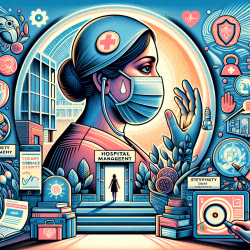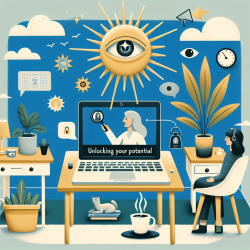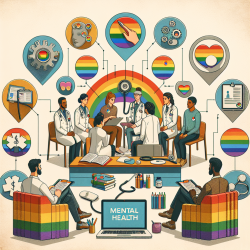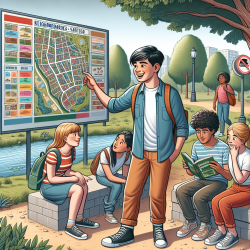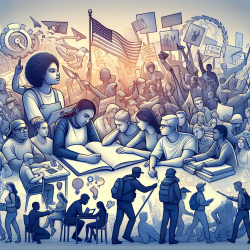Embracing Resilience: Lessons from a Hospital Entrance Screener
The COVID-19 pandemic has challenged us in unprecedented ways, particularly those working in healthcare. The autoethnography "Tales from a Hospital Entrance Screener: An Autoethnography and Exploration of COVID-19, Risk, and Responsibility" by Rachelle Miele offers profound insights into the lived experiences of healthcare workers during the pandemic's early stages. This blog explores how these insights can enhance the skills of practitioners, particularly those providing online therapy services like TinyEYE.
Understanding the Themes
Miele's research identifies several key themes: responsibilization, risk, emotional labor, policing and securitization, and the hero discourse. Each of these themes provides valuable lessons for practitioners, especially in understanding the psychological and emotional challenges faced by healthcare workers.
Responsibilization and Risk Management
The theme of responsibilization highlights the shift of responsibility from institutions to individuals. For practitioners, this underscores the importance of fostering a sense of agency and resilience in clients. Encouraging clients to take proactive steps in managing their mental health can be empowering, even in the face of systemic challenges.
Risk management is another crucial aspect. The constant awareness of risk faced by healthcare workers can lead to heightened anxiety and stress. Practitioners can help clients develop coping strategies to manage anxiety and stress, drawing from techniques such as mindfulness and cognitive-behavioral therapy.
Emotional Labor and Its Impact
Emotional labor, as described in the autoethnography, involves managing one's emotions to meet the expectations of a role. For practitioners, recognizing the emotional labor involved in their own work and that of their clients is vital. This recognition can lead to more empathetic and effective therapeutic interventions.
Policing and Securitization
The shift towards securitization in healthcare settings, as noted by Miele, raises concerns about access and equity. Practitioners should be aware of these dynamics and advocate for inclusive practices that ensure equitable access to services for all clients, particularly those from marginalized communities.
The Hero Discourse
The hero discourse often glorifies healthcare workers, potentially obscuring the real challenges they face. Practitioners can help clients navigate the pressures of being perceived as a "hero" by providing a safe space to express vulnerabilities and by normalizing the discussion of mental health challenges.
Encouraging Further Research
Miele's autoethnography invites practitioners to delve deeper into the complexities of healthcare work during a pandemic. By engaging in further research, practitioners can continue to refine their approaches and develop new strategies to support clients effectively.
To read the original research paper, please follow this link: Tales from a Hospital Entrance Screener: An Autoethnography and Exploration of COVID-19, Risk, and Responsibility.
